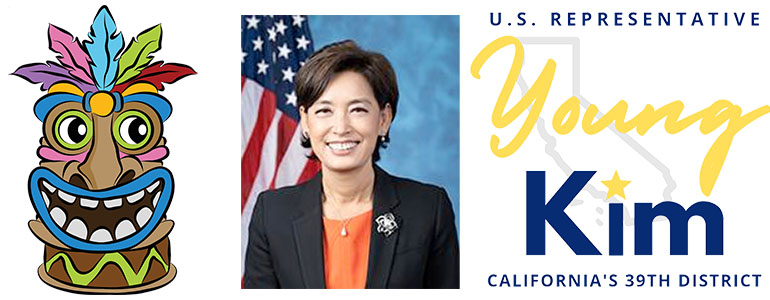
Problem Solvers Caucus China and Foreign Affairs Working Group Co-Chairs Rep. Young Kim (CA-29) and Ed Case (HI-01) led a letter to House and Senate leadership urging for a bipartisan path forward as Congress moves ahead with conferencing the House and Senate US-China competitiveness bills.
The Caucus expressed a commitment to being involved in conferencing committee negotiations and outlined general principles that have bipartisan support within the group. Reps. Kim and Case brought the letter for endorsement, which is supported by over 75 percent of the Caucus and signed by 31 Caucus Members.
“We share the belief that the United States must have a coherent strategy and approach that both parties can stand behind to effectively address the various challenges posed by the Communist Party of China,” the Caucus Members stated in the letter. “We believe the involvement of our bipartisan membership in the conferencing committee would build a broader base of support for this legislation in Congress and across America while critically showing the CCP a united front.”
The Members closed by saying, “We stand committed to working with you within and beyond our Caucus to ensure this bipartisan issue is able to move forward expeditiously.”
The full text of the letter can be found here and below:
As Members of the bipartisan Problem Solvers Caucus, a group of 58 Democrats and Republicans, equally divided, who work to find common ground on key issues facing the nation, we are writing to urge leadership to promote a bipartisan path forward as Congress moves ahead with conferencing the House and Senate US-China competitiveness bills. We share the belief that the United States must have a coherent strategy and approach that both parties can stand behind to effectively address the various challenges posed by the Communist Party of China. As Congress begins conferencing the USICA and America COMPETES Act bills, we are writing to express our willingness and commitment to be actively involved in conferencing committee negotiations, formally with the appointment of Problem Solvers Members or informally, to ensure Congress produces a strong, smart, and comprehensive bipartisan final bill.
It’s widely known the CCP has a long-term strategy to undermine the international rules-based order and supplant the U.S. as the world’s sole economic and military hegemon. Global competition with semiconductors, supply chain security, cybersecurity, AI, and technology research and development, play an increasingly important role in American innovation, national security, job creation, and our defense industrial base. With the CCP’s growing diplomatic, military, and technological sphere of influence through initiatives like the One Belt, One Road Initiative and the Digital Silk Road, in addition to aggression over Taiwan and in the South China Sea, it’s essential we put country over party to preserve U.S. global leadership and American competitiveness.
We believe the involvement of our bipartisan membership in the conferencing committee would build a broader base of support for this legislation in Congress and across America while critically showing the CCP a united front. Together we can leverage strategic investments and commonsense policies to remain the top leader in innovation, global security, democracy, economic investment, and more around the world. We must adopt both short and long-term strategies that an overwhelming number of Members from both sides of the aisle can support to preserve and create job opportunities for hard-working Americans, address America’s job skill-gap in highly technical industries, and ensure that our strategy will remain a driving force for policymaking on competition with the CCP for decades to come, regardless of which party is in control.
As part of the USICA and America COMPETES Act conferencing process, we want to emphasize the following general principles have bipartisan support within our group:
- Funding for the CHIPS Act and for semiconductor manufacturing in the U.S.
- Strengthening U.S. engagement in the Indo-Pacific region by increasing America’s diplomatic presence, military ties, and trade relations, and supporting economic development;
- Securing U.S. medical and national security supply chains;
- Improving trade and security ties with Taiwan, with additional resources and planning dedicated to counter PRC grey-zone tactics and deter a potential invasion;
- Supporting human rights in Hong Kong and China, including Uyghurs and ethnic groups in the Xinjiang region;
- Retaining the U.S.’s position as the global leader in science and technology and growing a robust STEM and high-skilled workforce;
- Fully funding and supporting the U.S. Agency for Global Media, Radio Free Asia, and the Global Engagement Center to counter CCP propaganda and disinformation;
- Supporting efforts by the U.S. International Development Finance Corporation and Export Import Bank to counter the CCP’s One Belt, One Road Initiative and debt-trap diplomacy;
- Strengthening U.S. global leadership in industry-led technical standards to ensure U.S. manufacturing competitiveness
We appreciate the steps you have taken so far to engage Members of both parties in discussions about U.S.- China competitiveness legislation. We stand committed to working with you within and beyond our Caucus to ensure this bipartisan issue is able to move forward expeditiously.
